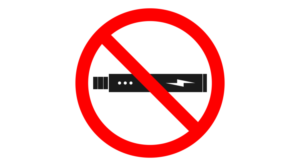After the United States Supreme Court decided Birchfield, which concluded States could not punish the refusal to comply with a request for a warrantless blood test, the landscape of laws relating to driving under the influence in North Dakota and Minnesota have changed significantly. First, the North Dakota and Minnesota courts recently decided the holding in Birchfield may be applied retroactively. Second, there has been ongoing litigation relating to the statutory language of the Implied Consent Advisory post-Birchfield.
Birchfield’s Retroactive Application
In two recent cases, both the Minnesota and North Dakota Supreme Courts have concluded the United States Supreme Court’s holding in Birchfield may be applied retroactively. This means an individual convicted of the crime of refusing a blood test upon suspicion of a DUI may have the chance to have that conviction reversed, even if the conviction took place before the Supreme Court declared criminal punishments for refusing warrantless blood tests unconstitutional. Essentially, if an individual was convicted of the crime of refusing a warrantless blood test, there is now an opportunity to petition for post-conviction relief to request that criminal conviction be vacated regardless of date of conviction.
Before the United States Supreme Court’s Birchfield decision, an individual could be convicted of a crime for refusing to take a blood test when requested by law enforcement without a warrant. After Birchfield, that same conduct cannot be subject to criminal penalties. What happens if you were convicted of refusing a warrantless blood test before June 2016, when the Supreme Court issued its Birchfield opinion? This question was recently answered by North Dakota and Minnesota courts.
In June 2018, the North Dakota Supreme Court concluded the holding in Birchfield applies retroactively. In Morel v. State, the defendant was convicted of the crime of refusing to submit to a blood test. The defendant then applied for post-conviction relief and requested his conviction be vacated. The Court analyzed the Birchfield opinion and concluded that criminal punishments for warrantless blood tests was a new substantive rule, which placed a class of private conduct beyond the ability of the state to criminally punish. Additionally, the Court ordered the refund of fees, costs, and restitution paid by a criminal defendant convicted under the pre-Birchfield test-refusal statute in these circumstances.
The Minnesota Supreme Court came to a similar conclusion in Johnson v. State about two months later. In Johnson, the defendant was charged with test refusal after police suspected he was driving under the influence. He refused to take a blood and urine test. The defendant sought post-conviction relief, arguing the warrantless tests were unconstitutional. The Minnesota Court of Appeals concluded the rule in Birchfield did not apply retroactively, and denied the defendant’s petition for post-conviction relief. However, the Minnesota Supreme Court reversed the Court of Appeals decision and remanded for retroactive application of the rule announced in Birchfield and other Minnesota cases determining warrantless urine tests were also unconstitutional searches.
The decisions in these cases provide an opportunity for those convicted of refusing to take a warrantless blood test to petition the court to vacate the conviction. This opportunity applies only in limited circumstances and the conviction will not be automatically vacated, but if the case was similar to the Johnson or Morel defendants, it may be possible to have the conviction vacated and fees returned.
Implied Consent Advisory
Minnesota and North Dakota’s decisions have recognized the retroactivity of Birchfield, which clears up one question about DUI laws moving forward, but questions still remain regarding the validity of the implied consent advisory. Although the North Dakota Supreme Court has said the Supreme Court of the United States did not find the entirety of the implied consent advisory unconstitutional, questions have been presented to the court regarding officer’s interpretation of Birchfield when reading the statutorily-mandated implied consent advisory to DUI arrestees.
The current implied consent advisory in North Dakota provides that officers must “inform the individual refusal to take a breath or urine test is a crime punishable in the same manner as driving under the influence. If the officer requests the individual submit to a blood test, the officer may not inform the individual of any criminal penalties until the officer has first secured a search warrant.” N.D.C.C. § 39-20-01(3). This statute was amended to its current language after Birchfield prohibited criminal punishment for the refusal of a warrantless blood test. The previous version of the implied consent advisory required officers to inform arrestees of the criminal penalties for refusing a blood test.
The Court has considered various issues relating to incorrect, incomplete, or altered implied consent advisories post-Birchfield. In Schoon, an individual’s driving privileges were revoked after he was charged with a DUI. When he was arrested, the officer read Schoon the implied consent advisory, which required warning about the refusal of blood tests. Schoon v. N.D. Dep’t of Transp., 2018 ND 210, ¶ 2, 917 N.W.2d 199. The officer read a modified version of the implied consent advisory, removing the reference to blood tests which was required at the time. Schoon consented to a blood test. The hearing officer and the district court determined the blood sample was properly obtained, despite the incorrect informed consent advisory. The Court concluded the advisory was not read in full, as required by statute; therefore, Schoon’s driving privileges were reinstated due to the faulty advisory.
In State v. Bohe, the defendant was arrested for a DUI and read the implied consent advisory. 2018 ND 216, ¶¶ 4-5. The officer read a modified version of the implied consent advisory in effect at the time, leaving out the portion referring to refusal being a crime punishable in the same manner as DUI. Because the law requires an entire warning, the Court concluded the blood test was inadmissible.
In a third recent case, an arrestee was not informed about the penalties for the refusal of breath and urine tests. DeForest v. N.D. Dep’t of Transp., 2018 ND 224. This arrest took place after the legislature modified the implied consent advisory to remove the reference to criminal penalties for the refusal of a blood test. The officer only requested a blood test, to which the arrestee, DeForest, consented. The Court noted there was no reason to inform an arrestee of the penalties for refusing breath or urine tests when the officer was requesting a blood test only. The Court concluded the blood test results could be properly admitted and ordered DeForest’s driving privileges suspended.
The Court is again considering a similar issue in LeClair v. N.D. Dep’t of Transp., Case No. 20180155, in which the officer omitted the word “punishable” from the implied consent advisory. The district court concluded the officer did not properly recite the verbatim statutory language and reinstated the arrestee’s driving privileges. The Department of Transportation appealed that decision, arguing the officer substantially complied with the required language despite the omission of the word punishable. As of November 2018, the Court has not yet issued an opinion.
The North Dakota Supreme Court has extended the Birchfield holding past blood tests and concluded urine tests are similarly intrusive. State v. Helm, 2017 ND 207, ¶ 16, 901 N.W.2d 57. Because an individual cannot be compelled to provide a urine test without a warrant, the refusal to comply with an officer’s warrantless request for a urine test also cannot be punished. However, the statutorily-required implied consent advisory still requires officers to warn arrestees about the penalties for refusing a warrantless urine test. Moving forward, the Court will likely have to consider the effect of refusing warrantless urine tests after a legally incorrect but statutorily-mandated advisory on urine tests.
As defense attorneys continue to parse the language of the implied consent advisory post-Birchfield, courts will continue considering the effect of the advisory on DUI arrestees. Although the Court has noted Birchfield did not abrogate the statutory requirement to give the entire implied consent advisory, it has not commented on its own holding regarding warrantless urine tests or whether the advisory may be unduly coercive in its current version.
The Court has acknowledged the statute’s language warning of criminal penalties for refusing a warrantless urine test in DeForest. However, the Court’s continued holding appears to be that officers must strictly comply with the legislature’s chosen implied consent advisory, regardless of the substance of recent case law. But, in DeForest, the Court appears to have become less stringent on requiring a full reading of the implied consent advisory, by concluding an officer was not required to warn about other tests that could result in criminal penalties. As courts and the legislature continue to consider the implied consent advisory, these requirements are likely to be modified.
Another issue the court has not yet fully considered post-Birchfield is whether the advisory language itself, especially when modified by the officer, may be unduly coercive. For example, in State v. Hawkins, the Court discussed an inaccurate implied consent advisory but declined to examine whether it was coercive. Other states have considered this issue and come to various conclusions. However, due to North Dakota’s reasonably unique connection to Birchfield and the subsequent cases and legislative changes, the North Dakota Supreme Court is likely due to consider this issue of coercion in the implied consent advisory.
For these reasons, it is important to carefully evaluate the implied consent advisory given to a DUI arrestee. As courts continue to evaluate the appropriate law enforcement advisories and requests during DUI stops, along with probable legislative changes, criminal defendants and defense attorneys will need to continue to be aware of the requirements.

Born and raised in Western North Dakota, Tatum O'Brien attended North Dakota State University and graduated with distinction from the University of North Dakota School of Law. She has since built years of litigating experience in her home state and become recognized as a highly skilled attorney representing clients in criminal and personal injury cases in addition to helping those who have experienced issues of medical malpractice, serious personal injury, and wrongful death.









Comments for this article are closed.